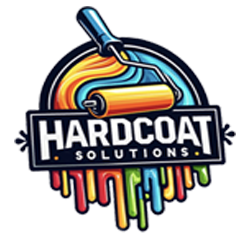FDA-Approved Urethane Cement Systems
Heavy-duty flooring systems designed for the most demanding environments. USDA compliant, antimicrobial, and built to withstand extreme temperatures and chemical exposure.
Last updated January 2024
Critical Applications for Urethane Cement
Food Processing Plants
USDA-approved systems for meat, dairy, beverage, and food manufacturing facilities requiring FDA compliance and antimicrobial properties.
Commercial Kitchens
Restaurant kitchens, institutional cafeterias, and food service areas needing thermal shock resistance and easy sanitation.
Pharmaceutical Manufacturing
Clean room environments requiring chemical resistance, antimicrobial surfaces, and compliance with pharmaceutical manufacturing standards.
Chemical Processing
Heavy industrial facilities with aggressive chemical exposure, high temperatures, and demanding mechanical loading requirements.
Professional Installation Process
Substrate Preparation
Shot blasting or heavy diamond grinding to achieve CSP 5-7 profile, crack repair, and moisture vapor testing for optimal adhesion.
Primer Application
Two-coat penetrating primer system to seal substrate and provide chemical-resistant foundation for cement system.
Cement Installation
Trowel-applied urethane cement mortar in multiple lifts to achieve specified thickness with proper compaction and smoothing.
Sealer & Finish
Final sealer coat for enhanced chemical resistance, easier cleaning, and compliance with food safety regulations.
System Build-Up & Specifications
Standard System (1/4")
For moderate chemical exposure and thermal cycling
Cement: 6mm (1/4") urethane cement mortar
Sealer: 3-5 mils chemical-resistant topcoat
Total Build: 6.5mm+ (1/4"+)
Heavy Duty System (3/8")
For severe chemical exposure and heavy mechanical loading
Cement: 9mm (3/8") urethane cement mortar
Sealer: 5-8 mils heavy-duty topcoat
Total Build: 10mm+ (3/8"+)
Extreme Service System (1/2")
For maximum chemical resistance and thermal shock
Cement: 12mm (1/2") reinforced cement system
Sealer: 8-10 mils premium topcoat
Total Build: 13mm+ (1/2"+)
Performance Properties & Compliance
Chemical Resistance
- 98% sulfuric acid resistance
- Sodium hydroxide (50% concentration)
- Organic acids and food acids
- Cleaning chemicals and sanitizers
Temperature Performance
- Service range: -40°F to 250°F
- Thermal shock: 200°F differential
- Hot water washdown capability
- Steam cleaning compatible
FDA/USDA Compliance
- FDA 21 CFR 175.300 compliant
- USDA accepted for food plants
- Antimicrobial properties
- HACCP program compatible
Mechanical Properties
- Compressive strength: 8,000+ PSI
- Impact resistance: 160+ in-lbs
- Abrasion resistance: 2mg loss
- Slip resistance: 0.6+ COF
Installation Timeline & Cure Schedule
Surface Prep
Shot blasting, crack repair, cleaning, and primer application.
Base Layer
First lift of urethane cement mortar application and initial cure.
Final Layer
Final cement layer, smoothing, and texture application.
Sealer Coat
Final sealer application for chemical resistance and easy cleaning.
Full Service
Complete cure achieved. Ready for production and chemical exposure.
Warranty & Compliance Assurance
System Warranty
- 10-year performance warranty
- FDA compliance guarantee
- Chemical resistance assurance
- Thermal shock protection
Maintenance Program
- Daily: Hot water washdown
- Weekly: Sanitizer application
- Monthly: Detailed inspection
- Annual: Professional maintenance
Food Grade Transformations
Before Installation

After Installation
Frequently Asked Questions
What is urethane cement and why is it used in food facilities?
Urethane cement is a heavy-duty flooring system that combines cement aggregate with urethane resins to create an FDA-approved, antimicrobial surface. It provides superior chemical resistance, thermal shock resistance, and meets strict USDA/FDA requirements for food processing environments.
How thick are urethane cement installations?
Urethane cement systems typically range from 1/4 inch to 3/8 inch thick, making them much thicker than standard epoxy coatings. This thickness provides exceptional durability, impact resistance, and the ability to handle heavy equipment and extreme temperature changes.
Can urethane cement handle hot water washdowns?
Yes, urethane cement is specifically designed for thermal shock resistance and can handle temperatures from -40°F to 250°F. It's perfect for facilities requiring hot water washdowns, steam cleaning, and extreme temperature variations without cracking or delaminating.
Is urethane cement slip-resistant when wet?
Absolutely. Urethane cement systems include integral slip-resistant aggregates and can be finished with various textures to achieve desired COF ratings. The system maintains slip resistance even when wet, making it ideal for food processing and commercial kitchens.
How long does urethane cement installation take?
Installation typically takes 3-5 days depending on the system thickness and area size. This includes surface preparation, primer application, cement installation, and cure time. The surface can handle light foot traffic in 12-24 hours and full service in 3-7 days.
What maintenance does urethane cement require?
Urethane cement requires minimal maintenance - daily cleaning with hot water and approved sanitizers. The seamless, non-porous surface prevents bacterial growth and makes deep cleaning easy. Annual professional inspections ensure continued FDA compliance.
Related Services
Get My Price
Need FDA-compliant flooring for your food facility? Get your specialized urethane cement quote.
